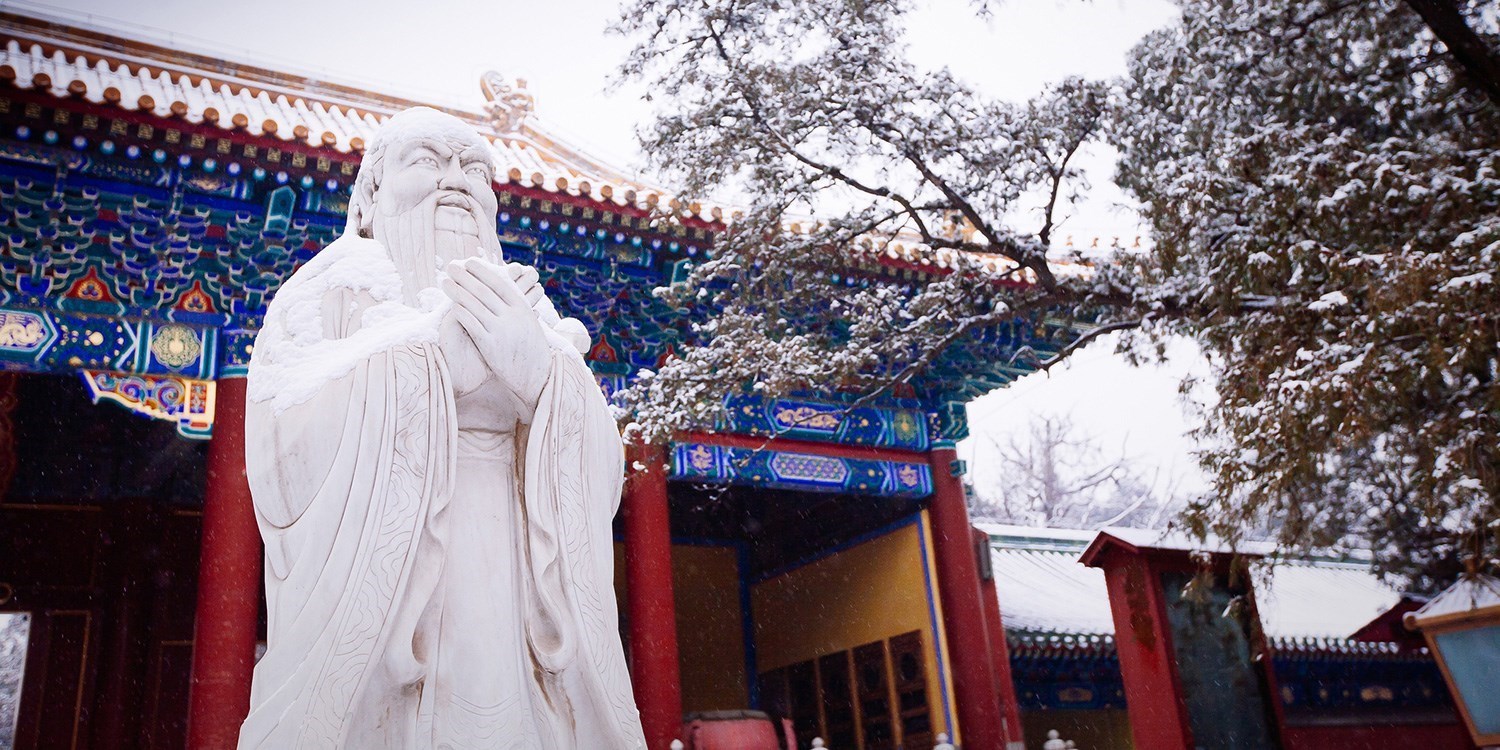China’s Best Kept Travel Secret & Why You Need to Visit Now
A typical China holiday will see you strolling Shanghai streets underneath towering futuristic skyscrapers, visiting the ancient and mysterious Terracotta Army of Xi’an and indulging in mouth-watering street food in Beijing. As magical and magnificent as these experiences are, they have been on the tourist trail for decades. If you’re like us and crave uncovering new travel destinations, then you need to visit China’s best-kept secret, Shandong.
Drenched in a deep history of philosophers and emperors, ancient temples with religious and historical importance, alluring granite peaks and golden beaches, Shandong is the real China.
Here is why you need to experience this exotically beautiful slice of China before the rest of the world catches on. And be sure to enter our competition to win a 13-night China Tour with flights from Australia courtesy of Expedition Exclusive - details at the end of this article.
It’s a place of legends
You may have heard the age-old sayings “everything has beauty but not everyone sees it” and “choose a job you love, and you will never have to work a day in your life”, well, these teachings came from the great Chinese philosopher Confucius. Born in Qufu over 2500 years ago, Confucius was known for his inspirational teachings that later formed into a religion and ideology In Shandong.
The small historical town of Qufu feels as if you have stepped back into traditional China. Only a two-hour bullet train ride from the modernity of Beijing, Qufu encompasses willow-lined rivers, silent streets and ancient city walls. In the heart of it lies Confuscious Temple, a spitting image of the red-roofed and yellow-tiled Forbidden City. During a day trip from Beijing or Qingdao, visit the three iconic places of Confucious' life; his birthplace now named Confucius Cave on Mount Ni, his family home Kong Mansion which has been converted into a museum and his place of rest at the Cemetery of Confucius.
Where the past meets the present: Temples, golf resorts and wine parks
The unique blend of Qingdao, Shandong's largest city, brings a twist to the traditional with Chinese hutongs and Taoist temples situated next to Bavarian architecture and Catholic churches as well as modern-day resorts. History buffs will love the ancient temples such as the sea-facing Zhanshan Temple; golfers will find a bunch of resorts offering immaculate greens. Many of the golf resorts in the region offer overnight stays as well as day rates for casual players. One of the most popular places is Tiger Beach, a modern links-style course overlooking the Yellow Sea.
Wine connoisseurs can enjoy tastings at local vineyards as well as a visit to Asia's first wine park. It is equipped with a wine research centre, production plant, wine château, wine trading centre and even a wine-themed tourist town.
There are golden beaches and jade mountains
China isn't usually regarded as a place for beach-lovers, however, sun seekers will be surprised to see glowing golden coastlines and glistening turquoise waters that resemble Hawaii. The most popular beach, Number One Bathing Beach, in Qingdao has a golden bay with soft sand and warm waters. Further along the peninsula, you'll find an array of inlets that offer secluded sunbathing spots.
Inland, a plethora of mountain peaks and deep valleys boast granite peaks and jade cliffs. Mount Tai to the west is a mountain of cultural and historical significance which stands tall at 5,069 feet high. Associated with birth, sunrise and renewal, it has been a place of worship and a source of inspiration for scholars and artists for over 3,000 years. Climb to the top (approximately a two-hour hike) and pass breath-taking sites such as 'Cloud Bridge' and the mystical 'Celestial Street' - known as the staircase to heaven and the Jade Emperor Temple.
It's a place to heal and rejuvenate
Due to its geothermal activity, Shandong has steaming hot springs dotted around the land. A bunch of resorts in Qingdao, Wendeng and Liaocheng offer indoor and outdoor onsen-style soaks as well as mud baths and five-star spa treatments. Many of the natural pools boast mountain or forest views, while the indoor steam rooms bring a resort-feel to the experience.
Spend one or two nights indulging in the treatments on offer. Popular ones include ecological-themed pools, fish pedicures - where tiny toothless fish nibble at your skin to exfoliate, medicinal pools and water infused with herbal medicine.
There’s a beer culture that matches, if not, beats Germany's
Germany’s Oktoberfest is yet to have a rival, until now. In the seaside town of Qingdao, the annual month-long International Beer Festival in August celebrates beverages from around the globe including the locally brewed Tsingtao. Influenced by the opening of the German Tsingtao Brewery Museum in 1903, the festival is now an internationally-acclaimed extravaganza that serves over 1300 types of beer and over 200 brands from around the world. If your holiday doesn’t time in with the festival, the Tsingtao Brewery Museum hosts tours and tastings year-round.
You’ll find ancient wonders as marvellous as The Great Wall of China
The mighty Great Wall of China is not China’s only great wall. It's smaller, lesser-known cousin is The Great Wall of Qi which stretches 500 kilometres long from Yellow River to the Pacific Ocean. Winding through undulating peaks and limestone cliffs, the Great Wall of Qi’s construction started around 654 BC. You can visit sections of the wall and take in the awe-inspiring views of the surrounding mountainsides. You’ll also find The Four Gates Pagoda, China’s oldest stone temple at the foot of Qinglong Mountain and 6th Century Buddhist statues sprinkled all over the country.







